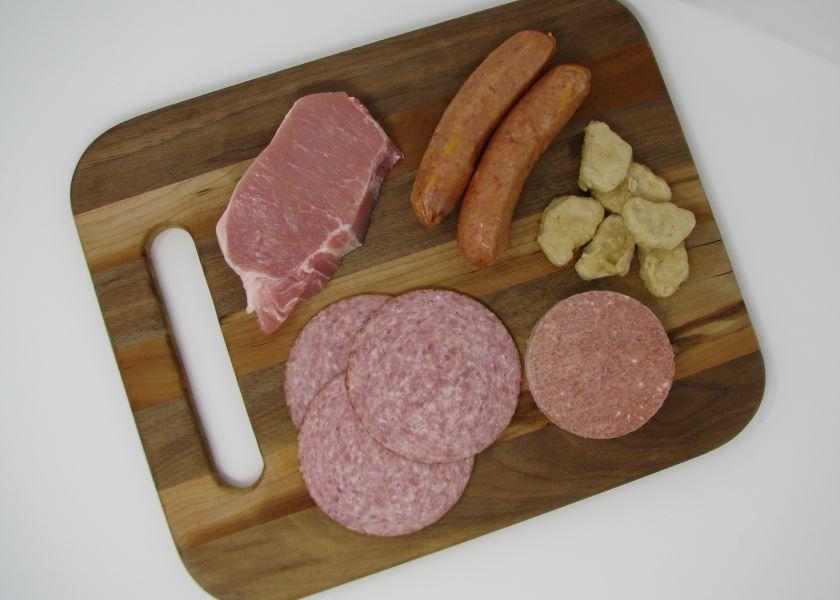Pork and Beef Industries Advocate for Clear Labels for ‘Fake Meat’

Sen. Roger Marshall (R-KS) and Rep. Mark Alford (R-MO) recently introduced the “Fair and Accurate Ingredient Representation on Labels Act of 2024.” The legislation aims to boost transparency and clarify labeling requirements for plant-protein and cell-cultured protein products so consumers have the full picture when buying groceries for themselves and their families, according to a release.
“Consumers deserve to be able to easily understand what products they are putting in their grocery cart,” Marshall said in a release. “It’s pretty simple: if food is represented as meat or poultry but is either lab-grown or made from a plant protein, it should be prominently displayed on the label. Distinguishing between a ‘black bean burger’ and an actual beef burger shouldn’t be hard. But, as other meat alternatives with misleading names continue to appear on shelves, we need to do more to ensure the transparency of imitation meats versus the real farm-raised meats.”
Backed by the National Pork Producers Council (NPPC) and other livestock and poultry organizations, the legislation would define "imitation” and “cell-cultured” meat and poultry. The USDA would oversee the labeling of such products and work with the U.S. Food and Drug Administration to maintain inspection standards, NPPC explained in Capital Update.
The labels must include terms like "imitation" or similar language, accompanied by a clear disclaimer for products not containing meat or poultry. In the case of cell-cultured meat and poultry, they would require labeling representing lab-grown food sources.
“America’s farmers and ranchers work hard every day to bring a high-quality, wholesome product to market. We’re not afraid of a little competition, but it is unfair for lab grown or plant-based fake meat products to trade on beef’s good name,” National Cattlemen’s Beef Association (NCBA) President Todd Wilkinson, a South Dakota cattle producer, said in a release. “This bill is especially important for ensuring that consumers recognize lab grown products that may be coming to market in the future. Consumers deserve to know how their food is made and to understand that lab-grown products made in a bioreactor are not the same as the high-quality beef raised by farmers and ranchers.”
NPPC said it wants consumers to have the ability to make informed decisions about the products they choose, especially with protein products.
“Accurate meat labeling at the grocery store benefits all consumers, regardless of dietary preferences,” NPPC President Scott Hays, a pork producer from Missouri, said in a release. “Labeling an imitation product as pork undermines the hard work that pork producers, like me, put in every day to deliver a reliable and affordable protein source.”
This bill is co-sponsored by Representatives Don Davis, Roger Williams, and Jonathan Jackson.
Read More:
Is There Room at the Table for Meat and Alternative Proteins?







